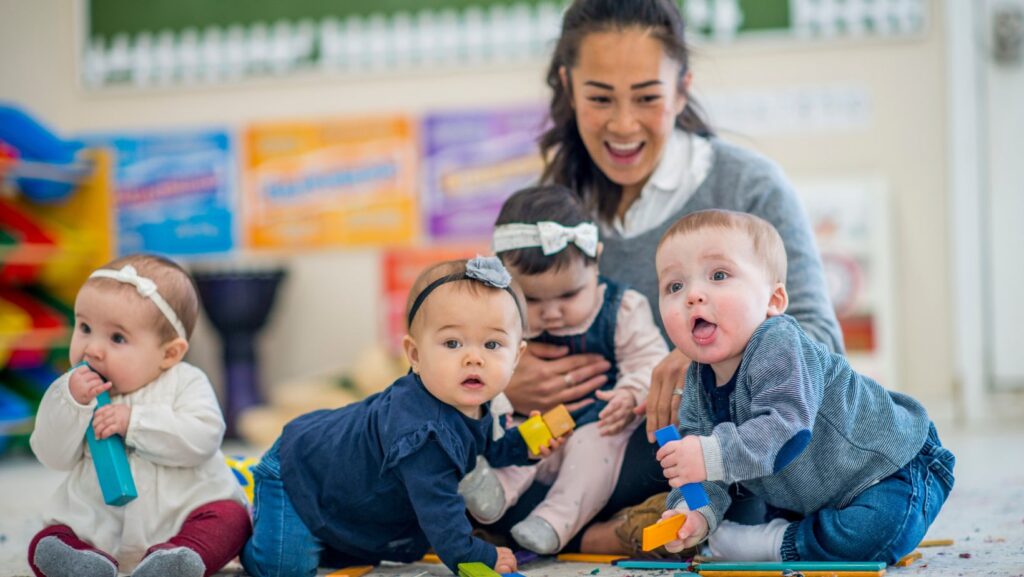Choosing the right daycare is a significant decision for any parent. With so many options available, it can be challenging to know where to start. This guide will help you navigate the process by outlining the key factors to consider when choosing a daycare. From safety and staff qualifications to curriculum and communication, these considerations will ensure that you find a daycare that meets your child’s needs and provides peace of mind for your family.
Safety and Security
When choosing a daycare, safety and security should be your top priority. As a parent, you want to ensure that your child is in an environment where they can explore and learn without unnecessary risks. Start by evaluating the physical security of the daycare. Look for secure entrances, such as locked doors or gates that require authorization for entry. This helps prevent unauthorized individuals from accessing the facility.
In addition to physical security, assess the daycare’s childproofing measures. Are electrical outlets covered? Are cleaning supplies and other hazardous materials stored out of reach? The environment should be designed with young children’s safety in mind.
It’s also important to ask about the daycare’s emergency protocols. How are staff trained to handle emergencies like fires, medical issues, or natural disasters? A well-prepared daycare will have clear procedures in place, and staff should be trained regularly on these protocols. By focusing on safety and security, you can ensure that the daycare you choose provides a secure environment where your child can thrive.
Staff Qualifications and Ratios
The quality of care your child receives at daycare is closely tied to the qualifications and experience of the staff. When evaluating a daycare, inquire about the training and credentials of the caregivers. Ideally, the staff should have formal education in early childhood development or related fields, as well as experience working with young children. Qualified staff are better equipped to understand the developmental needs of children and to provide a nurturing and educational environment.

Another critical factor to consider is the staff-to-child ratio. The number of children assigned to each caregiver significantly impacts the level of attention and care each child receives. Lower ratios are preferable, as they allow caregivers to provide more individualized attention and support. For example, infants and toddlers typically require more supervision and care than older children, so the ratios should reflect these needs.
During your visit to a daycare, take the time to observe how the staff interact with the children. Are they engaged, patient, and responsive? Positive interactions are a good indication that the staff are attentive and dedicated to providing quality care.
Curriculum and Daily Activities
A well-structured curriculum is an essential component of quality daycare, as it supports your child’s cognitive, social, and emotional development. When choosing a daycare, ask about the daily schedule and the types of activities offered. A balanced program should include a mix of structured learning activities, free play, and opportunities for creative expression.
It’s important to assess how the daycare incorporates educational elements into the daily routine. Activities such as storytime, arts and crafts, and simple math or science exercises can help develop early literacy, numeracy, and problem-solving skills. Equally important is the inclusion of social activities that encourage teamwork, communication, and sharing among children.
The curriculum should be age-appropriate, catering to the developmental stages of the children in the group. Additionally, flexibility in the program is key—daycare should be adaptable to the needs and interests of the children, allowing them to explore topics that capture their curiosity while providing structure and guidance.
Communication with Parents
Effective communication between parents and daycare providers is essential for ensuring your child’s well-being and progress. A good daycare will have systems in place to keep you informed about your child’s day, from meals and naps to activities and behavior. Regular updates, whether through daily reports, apps, or face-to-face conversations, help you stay connected to your child’s experiences and development.
In addition to routine updates, consider how the daycare involves parents in their child’s learning journey. Does the center offer parent-teacher meetings or progress reports? Are there opportunities for parents to participate in activities or events? Active communication and involvement help create a collaborative environment where both parents and caregivers work together to support the child’s growth.
It’s also important to feel comfortable communicating any concerns or questions you may have with the daycare staff. Open and responsive communication is a key indicator of a supportive and transparent daycare environment.
Location, Cost, and Convenience
While the quality of care should be your primary concern, practical factors such as location, cost, and convenience also play a significant role in your decision. The daycare’s location should be easily accessible, whether it’s close to your home, workplace, or along your daily commute. Convenience can reduce stress and make drop-offs and pick-ups smoother for both you and your child.

Cost is another important consideration. Daycare fees can vary widely, so it’s essential to understand what’s included in the cost. Does the fee cover meals, snacks, and supplies, or are there additional charges? It’s also worth exploring any financial assistance options, such as childcare subsidies, that may be available to help offset the costs.
While it’s tempting to choose a daycare based on convenience or affordability alone, it’s important to balance these factors with the quality of care provided. Finding a daycare that meets your practical needs while also offering a safe, nurturing, and educational environment is key to making the right choice for your family.
Conclusion
Choosing a daycare for your child is a decision that requires careful consideration of multiple factors. By focusing on safety and security, staff qualifications, curriculum, communication, and practical considerations like location and cost, you can make an informed choice that supports your child’s development and provides peace of mind for your family. Take the time to visit, ask questions, and observe—your diligence will help you find a daycare that meets your child’s needs and helps them thrive.

